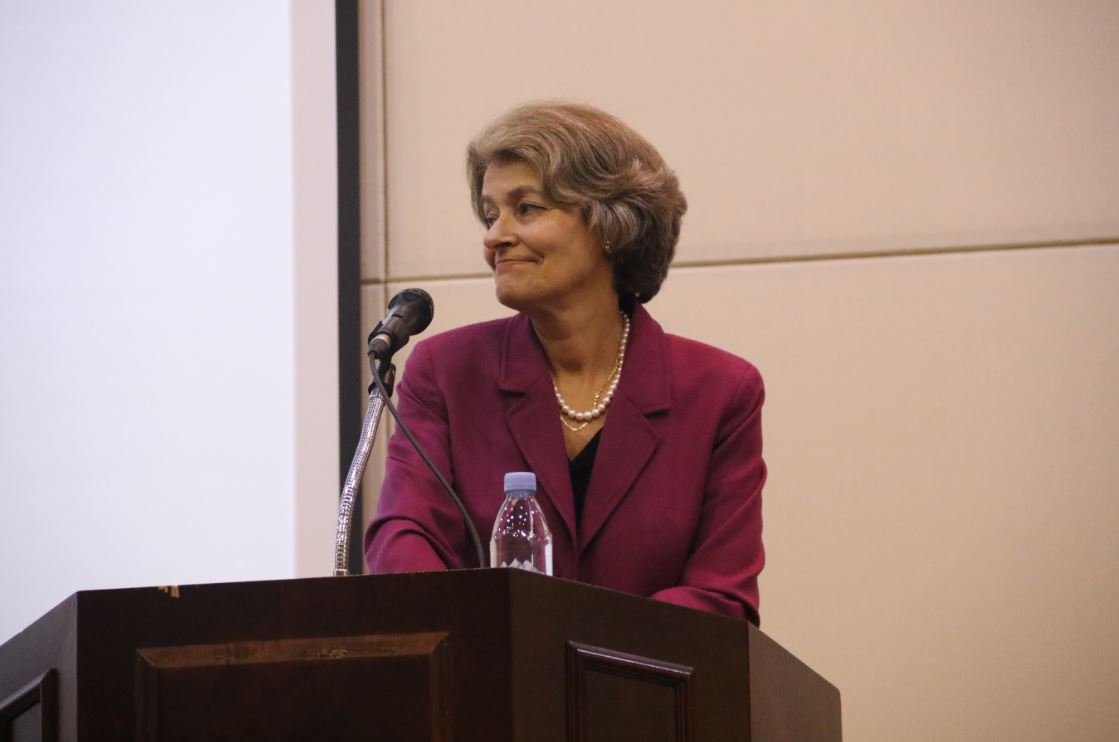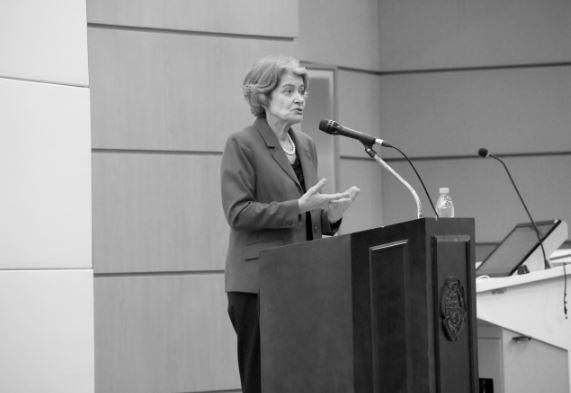
Dr. Irina G. Bokova, former Director-General of UNESCO, visited Ewha to give a lecture titled “Global Citizenship and UNESCO Spirit” at the LG Convention Hall on Nov. 1. The lecture was part of the Global Lecture Series organized by Scranton College.
Bokova was the first female and first Southeastern European to become a UNESCO DirectorGeneral, serving from 2009 to 2017. She was previously ambassador to the Bulgarian Embassy in France, the Bulgarian foreign minister, and the UN Bulgarian representative.
Upon starting her lecture, Bokova stated that she would focus on global citizenship and the UNESCO spirit, aiming to provide students with “a broader view on the Sustainable Development Agenda, which was proposed by the UN.”
The Sustainable Development Agenda is a collection of 17 goals adopted by the UN in 2016 to urge countries to promote prosperity while also protecting the world from poverty and climate change. Bokova briefly went over all 17 goals and explained that global citizenship education is needed to achieve the agenda.
“Global citizenship education is the bedrock of sustainability,” Bokova said. “It is an opportunity and an answer to a world under pressure.”
Global citizenship education is a new concept that has emerged as a response to global challenges in an interconected and globalized world. It is a framing paradigm which encapsulates how education can develop the knowledge, skills, values and attitudes that learners need for securing a world that is more just, peaceful, tolerant, inclusive, secure and sustainable. According to Bokova, global citizenship education has become an essential tool as the world faces multifaceted challenges and crises.
“Global citizenship education enhances our understanding across borders and cultures,” Bokova said. “It also advances our social, political, economic and environmental interconnectedness, which is necessary for addressing global and local issues.”
Recognizing that education is related to other social problems, Bokova not only spoke about global citizenship education but also about education itself.
“Education is related with gender inequality,” Bokova added. “Better educated women tend to be healthier, have an inclination to participate more in the formal labor market, earn higher incomes, have fewer children, marry at a later age, and are capable of better health care and provide education for their children, and choose to become mothers. Everything is interrelated.”

“I liked how she provided concrete examples about Pakistan when emphasizing education for girls,” said Lee Yoo-jin, a junior majoring Korean Language and Literature. “She said we should think about what we can do for girls beyond just sending them to school and thinking that the problem is solved. Those words really got into my mind.” A student participant in the lecture expressed her thoughts regarding the comments Bokova made about education.
Lee further shared her thoughts about the overall lecture. “The topic of the lecture intrigued me and I thought it would be interesting to listen to a class on global citizenship from an expert who worked in the field,” Lee said. “I was able to see a world in a broader point of view through the lecture.”
Regarding the issue of education for girls, Bokova explained that it is important to make sure that they feel safe at school, complete all levels of education, acquire the skills to compete in the labor market, and contribute to their communities.
Bokova ended the lecture on sharing her thoughts on how important it is for everyone to be concerned about the issue of girls’ education. “It’s not only about women convincing women to educate girls, but also emphasizing the need for men to participate in this debate.”

